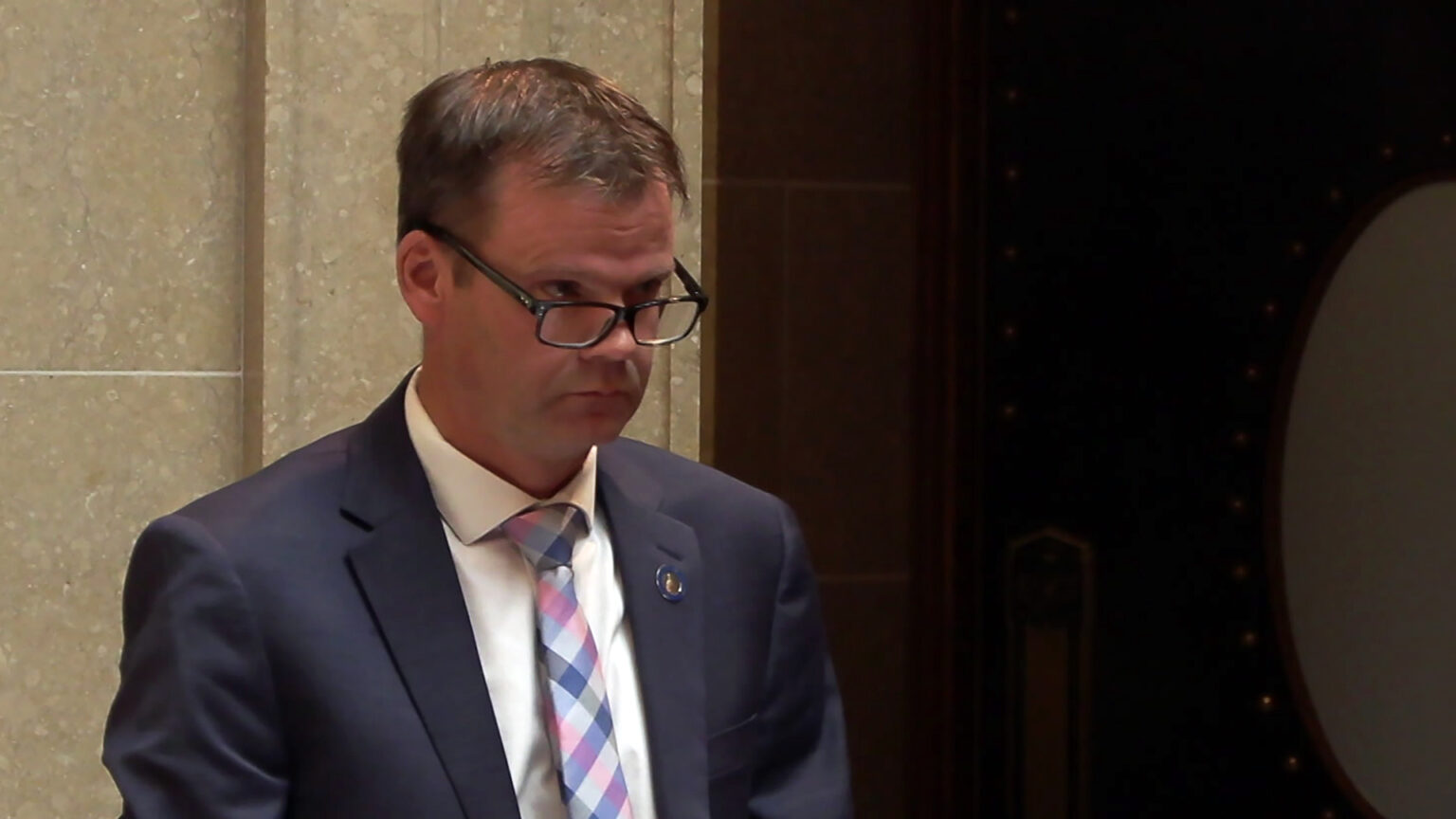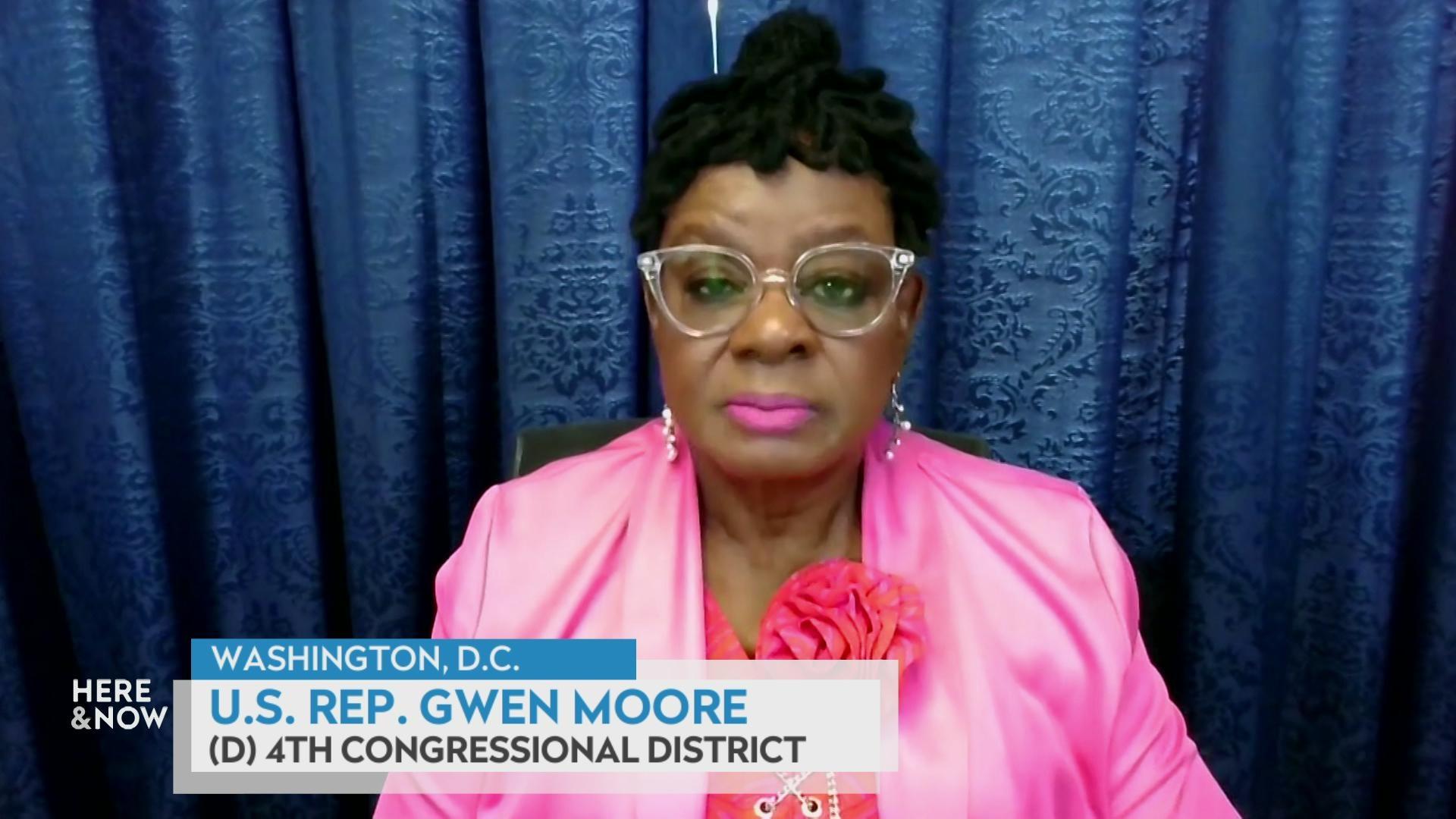LeMahieu says state-run medical marijuana dispensaries for Wisconsin are a 'nonstarter'
Republican Wisconsin Senate Majority Leader Devin LeMahieu rejected the idea of having state-run dispensaries for medical marijuana but there's still the possibility of reaching a compromise.
Associated Press
January 11, 2024

Republican Wisconsin Senate Majority Leader Devin LeMahieu stands and listens during a floor session on Sept. 14, 2023. LeMahieu said Jan. 11, 2024 that having state-run dispensaries for medical marijuana in Wisconsin as proposed by Assembly Republicans is a "nonstarter" in the state Senate. (Credit: PBS Wisconsin)

MADISON, Wis. (AP) — Having state-run dispensaries for medical marijuana in Wisconsin as proposed by Assembly Republicans is a “nonstarter” in the Senate, but there’s still the possibility of reaching a compromise that could pass, the Senate GOP leader said Jan. 11.
Senate Majority Leader Devin LeMahieu said at a WisPolitics.com event that the “challenge” for the Assembly bill is that many GOP senators are opposed to having the state operate the dispensaries.
“It’s a nonstarter for a lot of our caucus members,” LeMahieu said. “Why would we let government grow the size of government?”
The highly restrictive bill unveiled Jan. 8 by Assembly Republicans would limit medical marijuana only to severely ill people with chronic diseases such as cancer and allow for it to be dispensed at just five state-run locations. Smokable marijuana would not be allowed.
LeMahieu said creating a new office within the Department of Health Services to handle medical marijuana “seems like overkill.”
Still, LeMahieu didn’t rule out the possibility of reaching a compromise that could result in legalizing medical marijuana.
“I think there could be a way to do it,” he said.
The measure must pass the Senate and Assembly, and be signed by Democratic Gov. Tony Evers, before it would become law. Evers, who like many Democrats is a proponent of full legalization, said earlier in January that he would support medical marijuana only but was noncommittal on the Assembly’s plan.
Under the Assembly bill, the exact locations of Wisconsin’s dispensaries would be up to the state Department of Health Services, but they would be located in five different regions of the state. Given that recreational marijuana is legal in neighboring Illinois, Minnesota and Michigan, many Wisconsin residents would be closer to a dispensary in another state where they could purchase whatever they wanted.
The Wisconsin Policy Forum estimated in a 2023 report that more than half of all Wisconsin residents over the age of 21 live within a 75-minute drive to a legal dispensary in another state. And that was before Minnesota legalized recreational marijuana.
The Assembly proposal would limit the availability of marijuana to people diagnosed with certain diseases, including cancer, HIV or AIDS, glaucoma, multiple sclerosis, inflammatory bowel disease, severe muscle spasms, chronic pain or nausea, and those with a terminal illness and less than a year to live.
Wisconsin remains an outlier nationally. Thirty-eight states have legalized medical marijuana and 24 have legalized recreational marijuana. The push for legalization in Wisconsin has gained momentum as its neighbors have loosened their laws.
Marquette University Law School polls have shown a large majority of Wisconsin residents have supported legalizing marijuana use for years.
 Passport
Passport











Follow Us